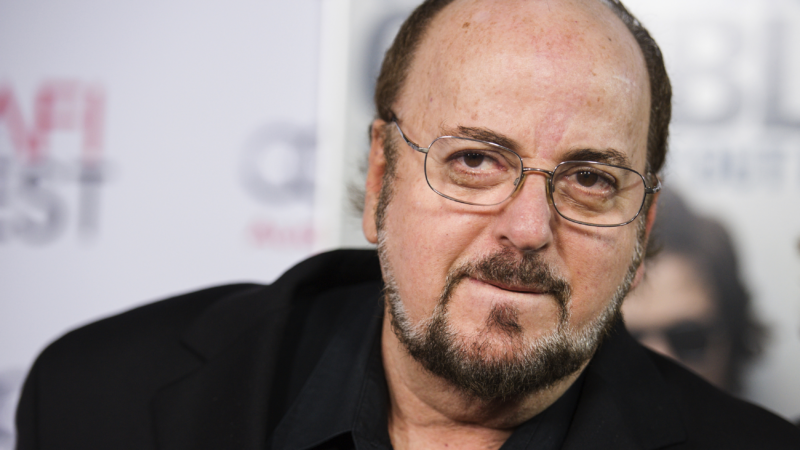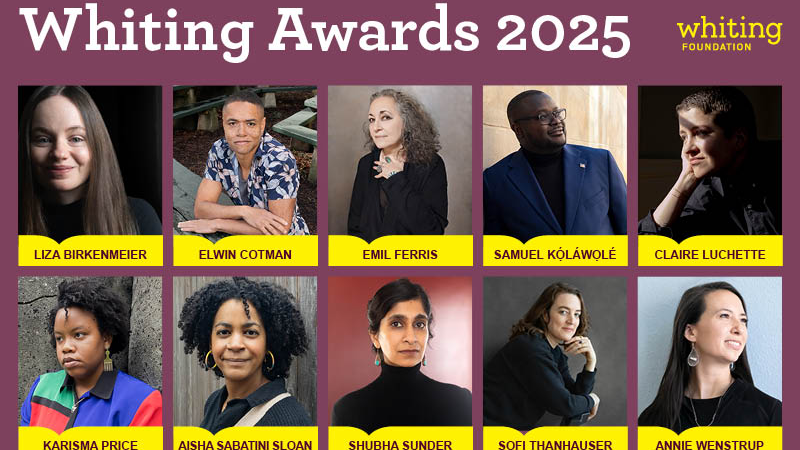The legacy — and future — of the farming game Stardew Valley
Some video games have grand adventures, epic heroes and galactic firefights, but not Stardew Valley.
Eric Barone, also known by the online moniker ConcernedApe, says that some fans have called his video game a “chore simulator.”
And while that might not sound fun, there’s a reason that more than 41 million people have played this game that many people say is relaxing.
In Stardew Valley, players inherit a small plot of farmland from their grandfather. They then make the decision to leave their corporate job in the city and live off that land, building a new life by making friends, planting crops and fighting monsters.
When Barone first began working on the game, he had just graduated college and was struggling to find a job. His goal was to make a game inspired by those he played as a kid, like Nintendo’s Harvest Moon.
“They really sparked my imagination and gave me this magical, special feeling of exploring a different world,” Barone told All Things Considered. “And I wanted to create that myself and kind of share that same feeling that I had with other people.”
Stardew Valley debuted in 2016 as a solo project. Barone was behind all the programming and the pixel art. He also made the music, which has gotten enough of its own fandom that now there’s an orchestra performing the serene music of Stardew Valley at venues across the world.
“For me, it’s a dream game,” says Barone. “It’s the game that I always wanted to play. Whenever I play it, I’m always coming up with new ideas and it’s just like I can add these things to the game.”
And he does keep adding to it. Barone and a small team of developers updated the game in November, making hundreds of changes and adding free new content. The continued support of this nearly eight-year-old game has instilled a sense of goodwill among fans.
But when will these updates end? It’s a question some fans are asking as they wait for Barone’s next game: Haunted Chocolatier.
All Things Considered host Juana Summers asked Barone why he thinks Stardew Valley is a big hit with people, and why he can’t stop working on it.
This interview has been edited for length and clarity.
Interview highlights
Juana Summers: I know from my own experience that Stardew Valley is the kind of game that really makes a player feel something. There’s this sense of relaxation that the game cultivates. So, I wonder if you can talk a little bit about the decisions you made creating this game, that sort of lures the player and keeps them coming back. And I just want to start by talking about the design aesthetic. I mean, the game’s based all around pixel art. There’s a ton of earth tones…
Eric Barone: I wanted the game to have a very natural feel to it. The theme of the game is that you leave the city and come to the countryside and try to connect with nature. So, I wanted to capture the kind of natural environment, somewhat based on where I grew up in the Pacific Northwest.
And in terms of the pacing of the game… a lot of games, I think, are almost hyper-stimulating, which I think can kind of burn you out when you play it, you know? But Stardew, it’s kind of a relaxed pace in terms of like when you accomplish goals, when you acquire rewards for what you were doing..a lot of people describe [that] they feel invigorated after playing Stardew Valley, as opposed to being burnt out.

Summers: I mean, this game has such a massive, devoted fan base. And you wrote in a recent update that you feel a sense of duty and obligation to all of these people who have bought Stardew Valley over the years. Eric, what’s your relationship to the fans? How much of the chatter that’s out there do you take in?
Barone: I do take in a lot of what the fans are saying. I pay attention to what their thoughts are, what their criticisms are. And the players are very important to me. I mean, I will never forget that it’s because of the players that I’m in this position, that the game was able to be popular, that my dreams as a game developer have come true.
And so, I guess, I just feel that I want to give it back to them in the way that they’ve given [it] to me. And I know that might sound kind of cheesy and it’s like… but for me …it’s not really about the copies sold, it’s about the fact that there’s so many people who have fallen in love with this world that I created.
Summers: You’ve said elsewhere that you could work on Stardew Valley for the rest of your life. So I do wonder, do you see a future at some point where you’ll be done with this game, where Stardew Valley feels like it’s complete?
Barone: I think a game can have too much content. And I ultimately want Stardew Valley to be the best game it can be. So if I feel like it’s starting to become kind of overwhelmed with content to the point where it’s detrimental to the game’s entertainment factor, I would stop at that point.
Another thing is, I do want to make more than one game in my life. Including the development time, I’ve been working on Stardew Valley for over 12 years now. But I don’t want to definitively say that the book is ever closed, because I think I will always have a desire to come back and maybe add a thing or two. You know, maybe even 50 years from now, I might add something.
Summers: 50 years from now?
Barone: Well, we’ll see. I like creating things. I don’t think I’m ever going to retire. I think it would be funny to release an update when I’m, like, 90 years old — if I live that long. Let’s hope.
Transcript:
JUANA SUMMERS, HOST:
Some video games have grand adventures, epic heroes and galactic firefights, but not all of them. That is not the case for one of my favorite games.
(SOUNDBITE OF CONCERNEDAPE’S “STARDEW VALLEY OVERTURE”)
SUMMERS: The farming simulation game Stardew Valley came out eight years ago, and it became a sensation.
ERIC BARONE: Stardew Valley is a role-playing game where you inherit a farm from your grandfather and you decide to leave your corporate job in the city to go move out to the countryside and try to make a new life for yourself by living off the land.
SUMMERS: That’s creator Eric Barone. He graduated college and was struggling to find a job, so he decided to make his own video game, one inspired by those games he played as a kid.
BARONE: They really sparked my imagination, gave me this magical, special feeling of exploring a different world. And I wanted to create that myself and kind of share that same feeling that I had with other people.
SUMMERS: When Stardew Valley came out in 2016, it was a solo project. That meant Barone was behind all the programming, the pixel art, the music.
BARONE: For me, it’s a dream game. It’s the game that I always wanted to play. Whenever I play it, I’m always coming up with new ideas. And it’s just, like, I can add these things to the game, so it’s fun. Like, I just want to keep adding to it.
SUMMERS: And he does keep adding to it. Barone and a small team of developers updated the game again last month, making hundreds of changes and even adding new content. To date, the game has sold over 35 million copies, and people keep playing, including me. I started playing back in 2020 around the start of the pandemic. And over the years, I’ve probably sunk hundreds of hours into playing it. When we called up Eric Barone, I asked him why he thinks this game still resonates with players after all these years.
BARONE: You know, some people have called it Chores: The Game. And I can kind of see that, yeah. Like, as you mentioned, you’re – every day, you’re kind of getting up. You’re watering your crops. You might go in and talk to people. There’s no high, grand adventure. It’s kind of, like, little domestic things. But that’s the sort of thing that, you know, we all do every day, and that’s just part of life. You know, it just keeps us going every day. So I think there’s something about that that does tap into a certain – a human drive that we have.
SUMMERS: And what about the music? I know that you composed the music, which is something that has also resonated with a lot of people. Can you walk us through some of your thinking?
BARONE: So for the music, I wanted to, for one, capture the seasons because the seasons are very important in Stardew Valley. You grow different crops in different seasons. The landscape changes. In the fall, you might harvest mushrooms from the forest. And so I wanted each season to have a very distinct feeling to it. And I think a lot of that was the instruments. You know, in the spring, I used a lot of, like, woodwinds and things like that.
(SOUNDBITE OF CONCERNEDAPE’S “SPRING (THE VALLEY COMES ALIVE)”)
BARONE: In the winter, I used, like, synthesizers, which I feel like have a cold quality to them.
(SOUNDBITE OF CONCERNEDAPE’S “WINTER (NOCTURNE OF ICE)”)
BARONE: So there was a little bit of, I guess, a challenge in taking, you know, what is essentially computer music but making it sound natural and organic and for it to really, you know, feel like you’re in a countryside village with all computer music – a lot of synthesizers and stuff.
SUMMERS: You’ve said elsewhere that you could work on Stardew Valley for the rest of your life. So I do wonder, do you see a future at some point where you’ll be done with this game, where Stardew Valley feels like it’s complete?
BARONE: I think so because I think a game can have too much content. And I want – I ultimately want Stardew Valley to be the best game it can be. So if I feel like, you know, it’s starting to become kind of overwhelmed with content to the point where it’s detrimental to the game’s, like, entertainment factor, I would stop at that point. Another thing is I do want to make more than one game in my life. It’s – I’ve been – you know, including the development time, I’ve been working on Stardew Valley for over 12 years now. But I don’t want to definitively say that the book is ever closed because I think that I will always have a desire to come back and maybe add a thing or two. You know, maybe even 50 years from now, I might add something. We’ll see.
SUMMERS: Fifty years from now.
BARONE: Well, we’ll see. You know, I like creating things. I don’t think I’m ever going to retire. I’m going to – I think it would be funny to release an update when I’m, like, 90 years old if I live that long. Let’s hope.
SUMMERS: Eric Barone is the creator of Stardew Valley. Eric, thank you so much.
BARONE: Thank you very much. I had a great time.
(SOUNDBITE OF CONCERNEDAPE’S “MINES (CRYSTAL BELLS)”)
Jury awards $1.68 billion to women who accused director Toback of sexual abuse
Toback, who wrote Bugsy, faces one of the largest #MeToo verdicts in history after a New York jury ordered him to pay 1.68 billion in damages to 40 women.
Judge finds Newsmax aired false and defamatory claims about voting-tech company
A Delaware judge finds the right-wing network aired false and defamatory statements about Dominion Voting Systems' role in the 2020 presidential election. A jury trial is slated for late April.
10 emerging writers win Whiting Awards
The awards, which come with a $50K purse, have helped launch the writing careers of many now well-known authors, including Colson Whitehead, Ocean Vuong, Alice McDermott and Jia Tolentino.
Alabama approves regulations on pharmacy benefit managers in order to help small pharmacies
The Alabama House backed the proposal that will require pharmacy benefit managers to reimburse independent pharmacists at least at the state Medicaid rate for prescription drugs. The bill now goes to Alabama Gov. Kay Ivey.
20 musicians who should get to go to space before Katy Perry
On April 14, Blue Origin plans to launch a space flight with a crew that includes the singer behind the 2010 hit "Firework." But we can think of many other artists who deserve to be among the stars.
Attorney representing a student protester detained by federal immigration agents
Amir Makled sat down with All Things Considered host Juana Summers to describe his experience and what it could mean for other attorneys who are going against the wishes of the Trump administration.









